Nipa Kutubu’s Journey Toward a Better Future
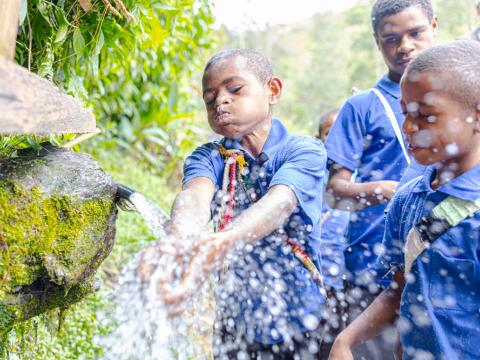
In the Southern Highlands of Papua New Guinea lies Nipa Kutubu, a district renowned for its breathtaking natural beauty and rich cultural heritage. Yet, beneath its mountain ranges and vibrant traditions, communities continue to face persistent challenges in accessing clean water and adequate sanitation.
Through unity, resilience, and the steadfast support of partners like the Santos Foundation, the Department of National Planning and Monitoring’s WASH Program Management Unit, and World Vision PNG, the Nipa Kutubu WASH Project has emerged as more than just a development initiative, it is a symbol of collective action and shared hope for a healthier, more sustainable future.
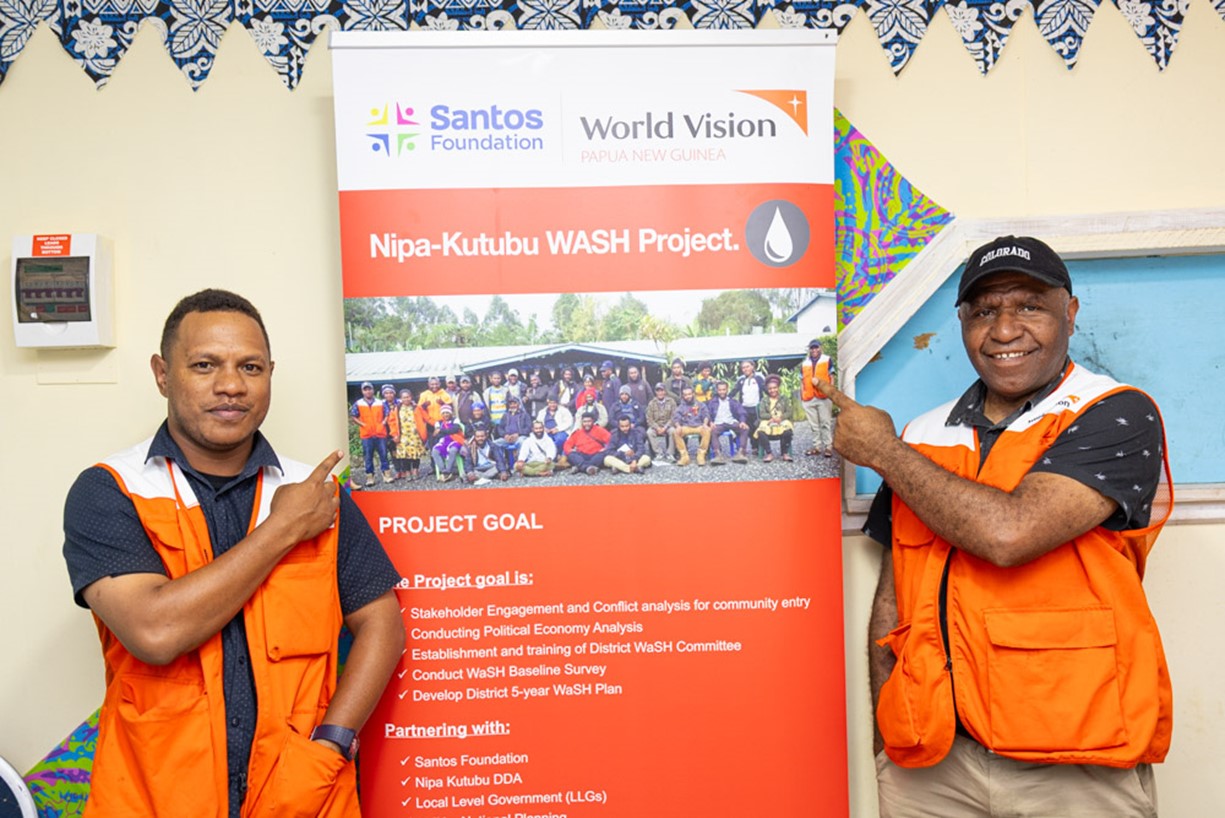
Once known for violent political campaigns and tribal conflicts, it was a shared need for safe, clean drinking water that brought communities together. Toward the end of 2024, World Vision conducted a baseline survey that became a pivotal turning point, capturing vital data on schools, healthcare facilities, and community profiles across the district. This data laid the groundwork for more targeted interventions.
Building on this momentum, a four-day WASH workshop was held in April 2025 at Mt. Arep Lodge in the Nipa Kutubu Station. Hosted and facilitated by World Vision PNG with support from the WASH Program Management Unit and the Santos Foundation, the workshop brought together government officials and local representatives to evaluate challenges and chart a path toward sustainable WASH development based on the data collected during the baseline survey.

Participants engaged in rich discussions on sanitation and hygiene practices, reviewed baseline findings, and examined the state of WASH facilities in schools and healthcare centers. Special sessions emphasized gender and disability inclusion, while collaborative activities led to the identification of priority projects and district-wide targets.
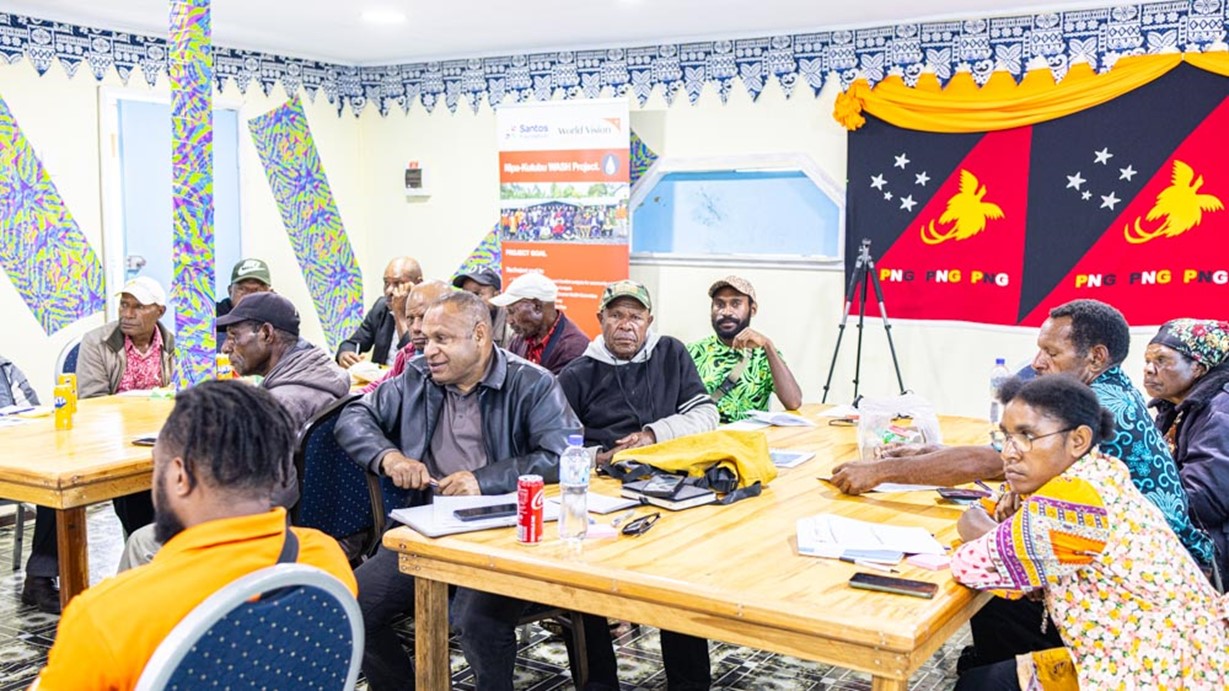
“This workshop has given us clear targets and a shared commitment to improving WASH services in Nipa Kutubu,” says District Administration Affairs Officer, Felix Kindup.
“The people of Nipa Kutubu district need WASH interventions. There is currently insufficient awareness surrounding the importance of it here, but since the implementation of the Nipa Kutubu WASH Project in 2024, our people have begun to understand how crucial it is for their well-being.
“The survey and workshop are two very new things that World Vision has introduced to us. And it is with such programs that locals feel involved in the planning process and develop a sense of ownership when carrying out awareness at the community level,” Felix adds.
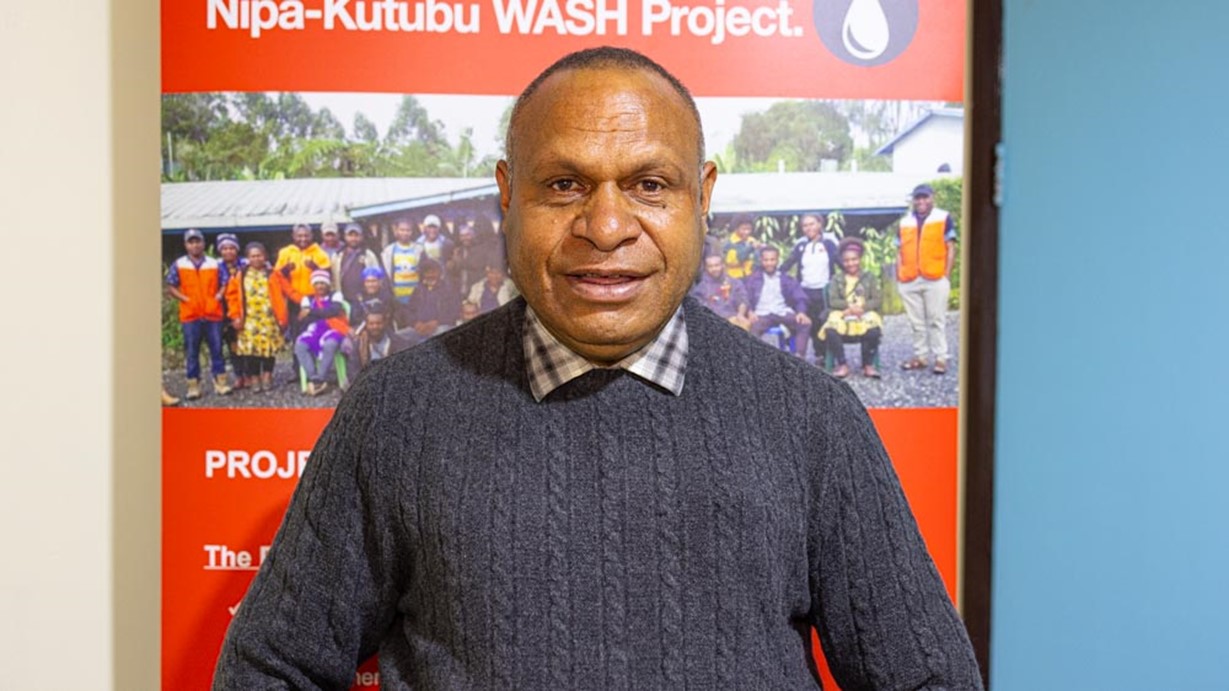
Women were also allowed to voice their concerns and actively participate in both the baseline survey and the district WASH Plan workshop, which has always been an uncommon practice in the Highlands, where cultural norms and decision-making are predominantly patriarchal.
“Security remains one of the most pressing challenges faced by women and girls in the smaller communities of Nipa Kutubu. In some villages, water sources are located far from homes, and during the dry season, young women and girls are especially vulnerable to sexual harassment and abuse as they travel long distances to collect clean water.
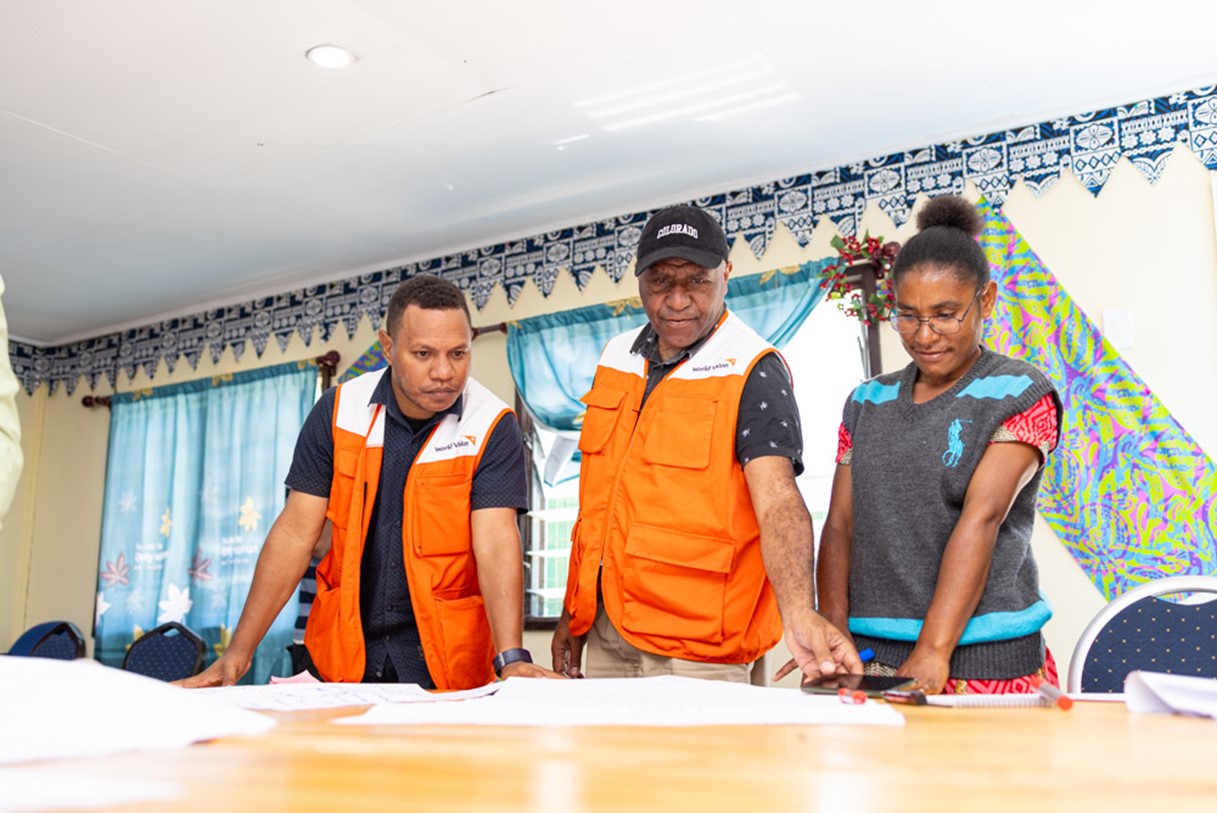
“This workshop is my opportunity to be a voice for them to advocate for safe, accessible water sources within walking distance that protect their dignity and well-being,” says Women’s Representative, Josephine Wellington
By the final day of the workshop, participants had defined key responsibilities and reviewed financing strategies, laying a strategic foundation for action. Representative of the WASH PMU under the National Department of Planning and Monitoring, Edmond Bannick highlighted the importance of collaboration and partnership with Santos Foundation, World Vision and the Nipa Kutubu District WASH Committee.
“The WASH Program Management Unit (PMU) serves as the custodian of the National WASH Policy (2015–2030) and leads the implementation of WASH efforts across Papua New Guinea, ensuring each initiative aligns with national targets.
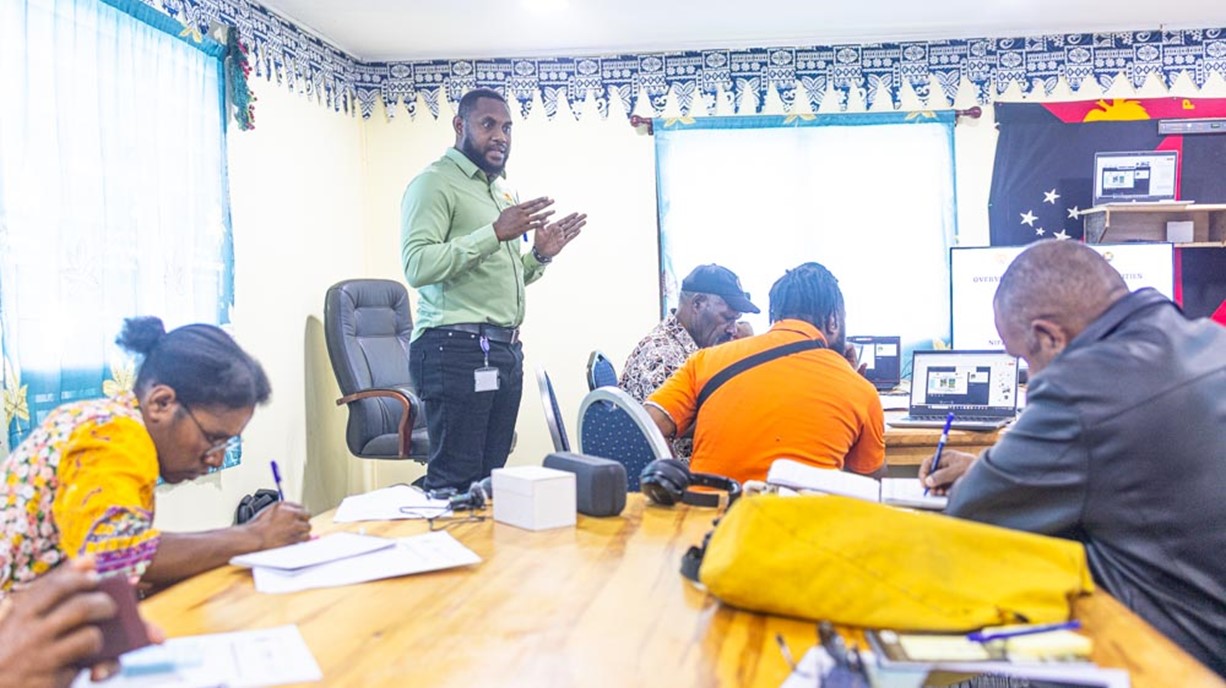
“Just like other districts in Papua New Guinea, Nipa Kutubu has signed an MoU that allows national government agencies and development partners, like World Vision and the Santos Foundation, to support local WASH initiatives. By doing so, the district has shown a strong understanding of how urgent the water, sanitation, and hygiene needs are in its communities. This was seen in the energy and involvement shown by participants during the recent workshop.
“The goal here is to help Nipa Kutubu create a five-year WASH plan that aligns with national strategies. With support from key partners, there’s potential to achieve even greater results, especially when everyone works closely with the community."
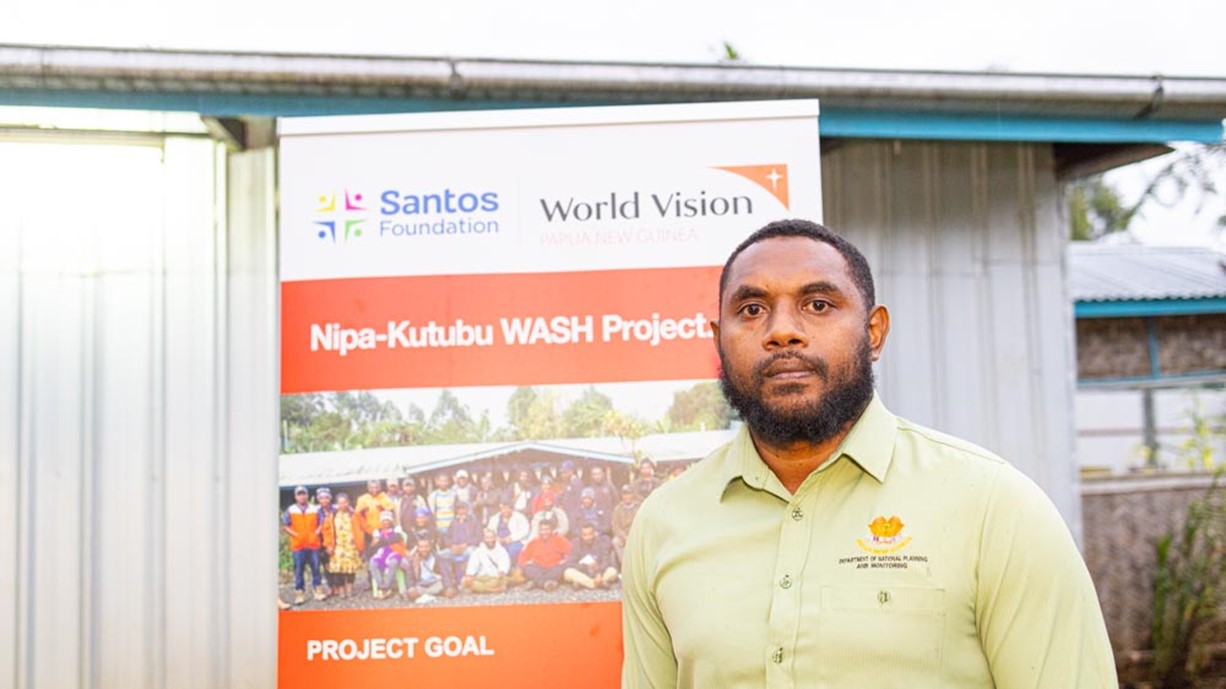
“What stands out the most is the passion and commitment of the local WASH committee. They are working hard to bring WASH services to even the most remote villages. That kind of grassroots leadership is exactly the kind of momentum needed for sustainable, community-driven development,” Edmond adds.
Tucked within the rugged beauty of Papua New Guinea’s Southern Highlands, the people of Nipa Kutubu are writing a new chapter. One defined not by conflict, but by compassion, collaboration, and community-led change.
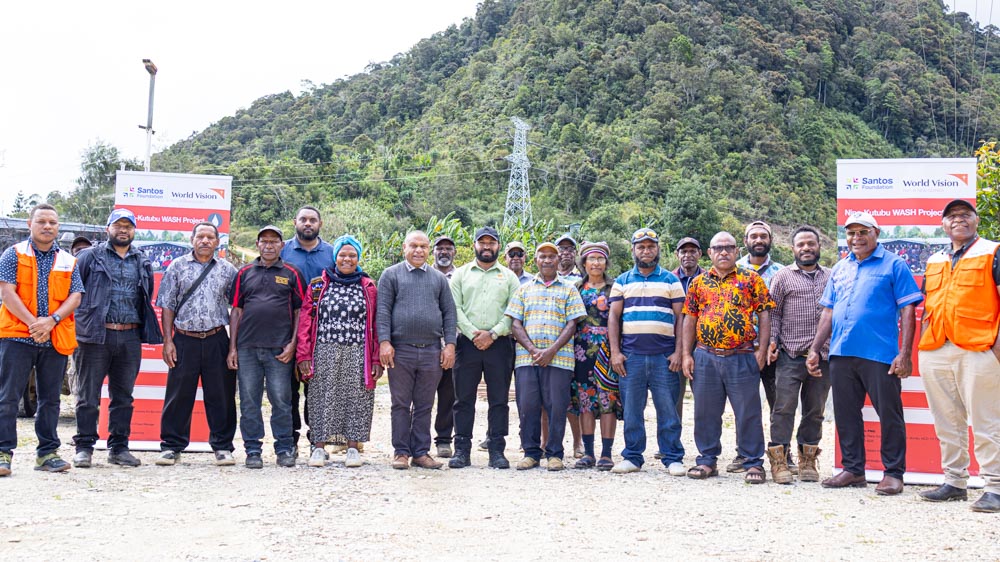
For too long, access to safe water and proper sanitation remained a distant dream. But that dream is now within reach thanks to the shared efforts of local leaders, women’s advocates, the WASH PMU under the National Department of Planning and Monitoring, the Santos Foundation, and World Vision PNG.
Through surveys, inclusive workshops, and honest conversations, this once-divided district has embraced a common goal, which is to bring dignity, safety, and health to every household. Women raised their voices. Communities took ownership. Leaders stood side by side. And together, they began shaping a five-year plan grounded in data, driven by local priorities, and powered by trust.
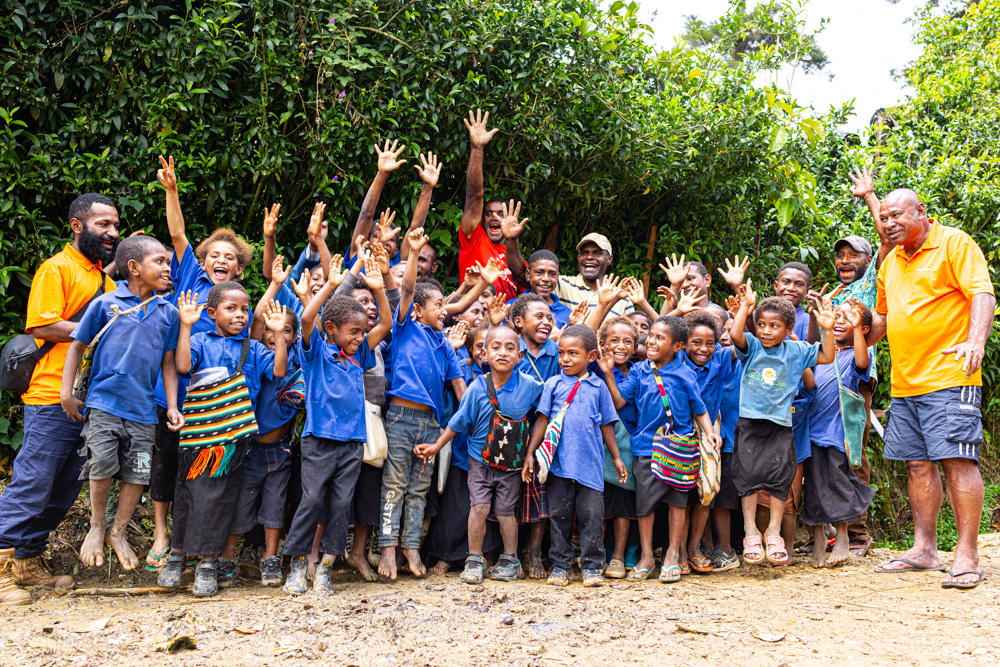
What is happening in Nipa Kutubu is more than a WASH project, it is a movement. One where resilience rises above history, and a shared need becomes the foundation for peace, progress, and hope that ripples into generations to come.